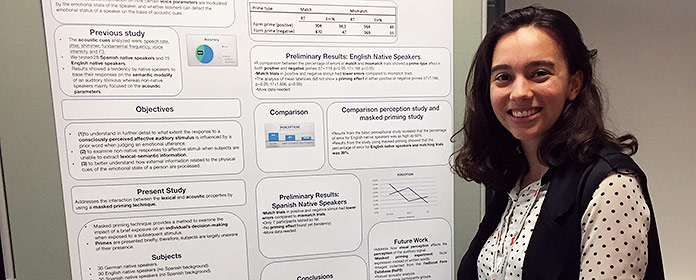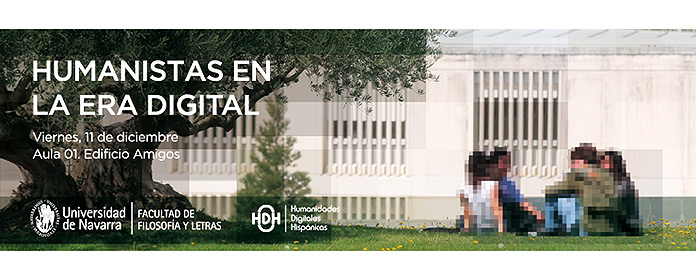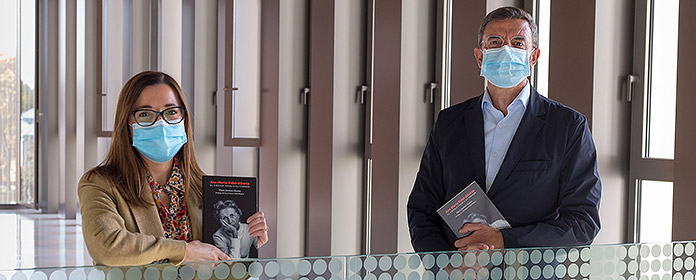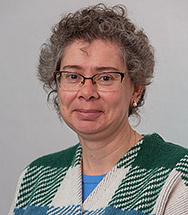Studying the Degree in Philology Hispánica has been one of the most important previous requirements for apply for the access to this Master's Degree" "
Thanks to her training, Mónica González Machorro has been admitted to the University of Munich for a postgraduate program in speech processing.

Next May, Mónica González Machorro, a 4th year student of Philology Hispánica, will finish her programs of study at the University of Navarra. Her training has been core topic in order to access a postgraduate program in speech processing, which she will start studying at the University of Munich next year: "The programs of study in Philology provides a complete basis on language, essential to understand how it is perceived and produced. requirements This was one of the most important prerequisites for apply for to gain access to Master's Degree," she explains. She says that she chose the University of Munich to continue her training "because during my Erasmus stay, I had the opportunity to meet many professors from Master's Degree and I could get involved in the work they are doing. I am very happy and excited to start this new stage".
During her stay in Germany, our student will also do an internship at Audeering, a company dedicated to the automatic detection of emotions through openSmile, an artificial intelligence software developed by business, used by companies in fields as diverse as video games, automobiles or health clinics: "I met director at a lecture I attended last year and I told them about my interest in doing an internship with them". As a philologist, her work will consist of performing acoustic analysis of the data with which the software is fed, with the goal aim of improving it: "The philological background is very important, but knowledge of computer science and programming is also necessary. The Master's Degree that I am going to do will provide me with the training necessary to dedicate myself to development of automated systems for the detection and recognition of emotions through speech," he explains.
His interest in this field began in the first year of degree program, after taking a subject course taught by Professor Mark Gibson: "We had to do a little experiment in speech perception and I liked the experience so much that I became interested in the topics he was studying". Since then, he has been collaborating on the laboratory Speech of the School of Philosophy and Letters, of which Professor Gibson is director. "Working with him helped me become more confident in my own ideas and knowledge. He motivated me to attend to conferences, meet and chat with people involved in topic. He also encouraged me to do an internship in Australia, where I was able to work at laboratory MARCS, one of the best research centers in the field," he says.
When she takes stock of her time at the University, she assures that the experience has been very satisfactory: "I have really enjoyed the extracurricular activities offered and I have received an excellent attention , both from the professors and the administrative staff, who have always been willing to help me". For that reason, to the students who will begin their programs of study next year at the School of Philosophy and Letters he encourages them to "stay in contact with their advisor andwith the professors working on the subjects they are interested in, as they are always willing to chat with you, and even to involve you in their projects". He also advises them to enjoy the university stage by "trying out different activities and subjects, because you can discover topics of interest. At university there is always an interesting talk or an event worth attending attend".




